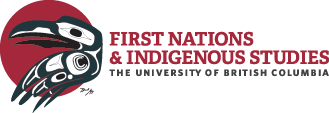Sixties Scoop
…was one of these areas.2 In 1951, twenty-nine Aboriginal children were in provincial care in British Columbia; by 1964, that number was 1,466. Aboriginal children, who had comprised only 1…
Constitution Express
…recognized as parties in decision-making on a federal level.7 That ambiguity surrounded sectionsthat were to prevent discrimination and protect “traditional rights and freedoms” for First Nations, Inuit, and Métis.8 That…
About the REDress project
…will later be installed in public spaces throughout Winnipeg and across Canada as a visual reminder of the staggering number of women who are no longer with us. Through the…
Marginalization of Aboriginal women
…established to train young women away from perceived “promiscuity” and into domesticity, forcing European patriarchal roles onto Native women.11 If Native women did not recognize or obey European patriarchal roles,…
Oral Traditions
…conveyed from generation to generation. Oral traditions form the foundation of Aboriginal societies, connecting speaker and listener in communal experience and uniting past and present in memory.”2 Western discourse has…
Powley Case
…laid claim to Rupert’s Land and beyond, many Métis populations in the west did not experience any on-the-ground evidence of this authority for generations and continued to function as independent,…
The Indian Act
…the coming years. The potlatch was one of the most important ceremonies for coastal First Nations in the west, and marked important occasions as well as served a crucial role…
About Jordan Bennett
Biography I am a multi-disciplinary visual artist of Mi’kmaq decent who calls the west coast of Newfoundland home. My work is derived from a combination of popular and traditional cultural…
Totem Poles
…Pacific Northwest to represent and commemorate ancestry, histories, people, or events. Totem poles are typically created out of red cedar, a malleable wood relatively abundant in the Pacific Northwest, and…
ILO Convention 169
…right to veto such projects,” and as such, Gerard Schulting points that“ many Indigenous representatives feel that their lack of veto power allows governments too much freedom to do as…

